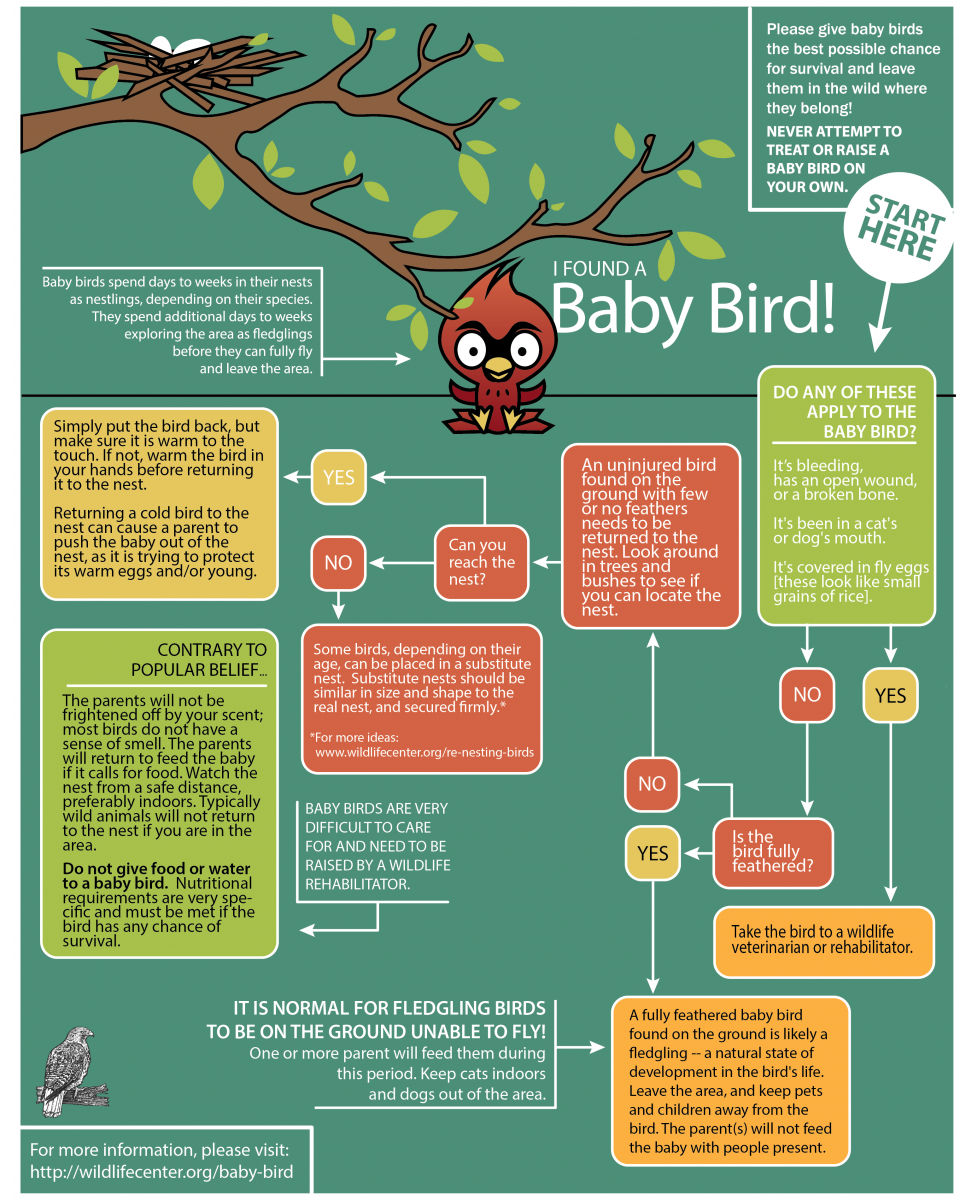Songbirds
|
We are occasionally able to accept adult songbirds as time and resources allow.
We do not remove nests and are not able to admit nestling or fledgling songbirds because of limited funds and time. We are available to answer questions and refer callers to other rehabilitation centers. Songbirds do grow up very quickly (about a month from the time they hatch to when they fledge), so even if their presence is an inconvenience it won’t be long before they leave! Here are some tips for ensuring a successful nesting season! |
Pruning: Some songbirds nest in trees and shrubs. If you didn’t get around to pruning in winter, please wait until mid- to late summer to prune to avoid disrupting nests. If you must prune during nesting season, please inspect the tree or shrub for nests before pruning.
Mowing: Some songbirds, such as juncos, nest in tall grass. If you need to mow an area with tall grass, please inspect the area for nests before mowing. Eaves: Some swallows, like barn and cliff swallows, build mud nests in eaves. If there are eggs or hatchlings, please wait until the babies fledge before removing nests or pressure washing. Vents: If you notice adult songbirds building a nest in a vent, you can remove the nest material and screen off the vent. If there are eggs or hatchlings, please wait until the babies fledge before removing the nest and screening off the vent. Pets: Cats and dogs can kill nestling or fledgling songbirds, or the parent birds that are feeding the nestlings or fledglings. Please help protect birds by keeping pets indoors or supervising them while outdoors. Consider building a catio for your cats so that they can enjoy being outdoors without harming wildlife (catios help keep cats healthy and safe too!). Renesting: If a nestling (naked or covered in down or pin feathers) songbird falls out of its nest, please look for its nest and put the baby back in the nest. If you can’t find the nest and the baby is adequately feathered, you can attach a basket with nesting material to the tree or shrub and put the baby in the basket. Please observe the nest to make sure the parents are returning to feed the baby. (Note: if the baby isn’t adequately feathered and you cannot find the original nest, it needs to go to a rehabilitator.) Fledglings: If you find a fledgling (mostly feathered) songbird on the ground, please leave it where it is! Fledglings spend time on the ground while learning how to forage and fly. The parents should return to feed it. Please keep pets indoors or supervised while outdoors if there are fledglings in the area. |

